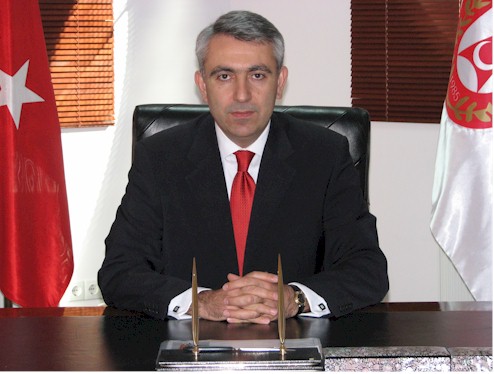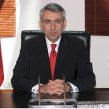
Undeterred by Financial Crisis, Turkish Defense Companies Plan to Increase Domestic Arms Production
Publication: Eurasia Daily Monitor Volume: 6 Issue: 39
By:

It is estimated that Turkey has been spending about $5 billion for arms per year and according to a report released by the country’s main arms procurement agency, has set a goal to increase the share of the arms produced domestically to 58 percent of the production from 107 military procurement projects. Direct purchases are to account for 16 percent, production with a consortium 2 percent, and joint production 24 percent.
The "Performance Report-2009" posted on the web site of the Under Secretariat for Turkish Defense Industries (SSM), the country’s main official arms procurement agency, stated that it intended to reach a 45 percent share of domestically manufactured arms this year ("Performans Raporu 2009," www.ssm.gov.tr) and a 50 percent share by 2010 ("2007-2011 Strategic Plan," www.ssm.gov.tr).
According to Performance Report 2009, the share of domestically produced arms among 74 military procurement projects signed thus far stands at 22 percent, direct purchases at 8 percent, production with a consortium at 11 percent, and joint production at 59 percent. The 74 projects have a value of about 24.34 billion TRL ($14.4 billion).
Since the SSM was created 24 years ago with the aim of setting up a strong defense industry infrastructure by 2004 in this NATO member country, the share of domestic production has remained at between 20 and 25 percent, while Turkey has relied on foreign sources for almost 80 percent of its high-tech military equipment.
The Turkish government introduced a major shift in its procurement strategy to reverse this trend in the already ailing defense industry by putting emphasis on increasing the share of domestic arms production. Minister of National Defense Vecdi Gonul said last November that the share of arms manufactured locally had reached about 41.6 percent by 2007 (Milliyet, November 18, 2008). It is not clear, however, whether this 41.6 percent consisted of technologically advanced military products or lower level systems.
Meanwhile, Research and Development (R&D) Projects in defense were valued at about 31.52 million TRL ($18.6 million) in 2006 and 134.67 million TRL ($79.5 million) in 2007, the performance report said, adding that the turnover of Turkish defense companies (numbering around 70) had reached $1.72 billion in 2006 and $2.01 billion in 2007.
The 41 R&D projects purchased by the SSM are categorized as network, information, satellite, and sensor systems (63 percent); systems integration (20 percent); electronic warfare (15 percent); and missile and guidance systems (2 percent). Turkish defense exports that were realized through offset agreements with foreign companies constituted 37 percent in 2006 and 45 percent in 2007 of the total defense industry exports, according to the same report.
SSM plans for exports by the Turkish defense industry will reach $650 million this year and $1 billion by 2011. NATO initiated tenders were awarded to 36 Turkish defense companies in 2007.
SSM revenue, which comes from various sources including the lotteries earmarked for arms procurement, also reached $2.459 billion while expenses were $1.581 billion in 2007.
The above figures indicate that Turkey has a long way to go to seriously boost its defense industry to the point that it can have a positive impact on the already fragile economy, a Western military official told Jamestown in an interview on February 23.
Added to the problem is the lack of civilian oversight of the Turkish military budget, which contains special funds earmarked for defense and are not available to public scrutiny. A Turkey Progress Report released by the European Union (EU), which Ankara aspires to join, underlined this problem on November 5, 2008:
No progress has been made on strengthening parliamentary oversight of the military budget and expenditure. The Parliamentary Planning and Budget Committee reviews the budget of the Ministry of National Defense. However, extra-budgetary funds are excluded from parliamentary scrutiny. The Defense Industry Support Fund (SSDF), from which most procurement projects are funded, is still an extra-budgetary fund (www.ec.europa.eu/enlargement/<wbr></wbr>pdf/press_corner/key-<wbr></wbr>documents/reports_nov_2008/<wbr></wbr>turkey_progress_report_en.pdf)<wbr></wbr>.
Meanwhile, despite the global economic crisis, which has resulted in a drop of the Turkish lira by more than 35 percent against the dollar since last September, Turkish procurement officials have said that the crisis would not have a negative impact on defense procurement expenditures for the time being. Speaking to the Turkish media in Abu Dhabi, United Arab Emirates, on February 23 while he was attending the International Defense fair IDEX-2009, SSM Undersecretary Murad Bayar said that the sector was currently unaffected as the resources were budgeted in advance and projects were spread over several years. Pointing out that short-term changes were generally not possible for the sector, Bayar noted that the crisis had some benefits because it had resulted in a drop in many hidden costs. Yet, he said, the companies dealing with raw materials as well as the defense industry’s affiliated companies may be affected by the crisis:
In these sectors—for example, in the automotive sector—there are some private companies that produce vehicles both for the military and for the private sector. These companies are likely to be hit by the crisis. The defense industry’s affiliated sectors, too, may be affected, but I do not expect problems for the main contractors. I guess all of them saw increases in their turnovers in 2008, and this is likely to continue also in 2009 (Today’s Zaman, February 24).
Bayar’s optimistic remarks about the defense sector came in the midst of a bleak picture drawn by Ulrich Zachau, the director of the World Bank in Turkey. Speaking at the third Risk Management summit held in Istanbul on February 25, Zachau warned of an increase in unemployment as the growth rate slows down (Milliyet, February 26). Turkish Economist Mustafa Sonmez said that Turkey’s real unemployment rate was close to 26 percent of a workforce of 24.3 million (Sabah, February 16).




